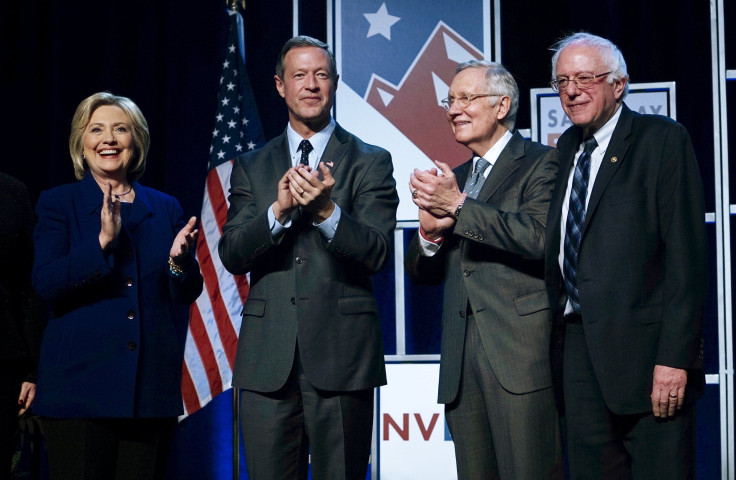Election 2016: Presidential Candidates To Tackle Wage Growth After Year Of Positive Job Reports

Fattening wallets and padding the bank accounts of the middle class must be a priority for whoever emerges as President Barack Obama’s successor this year, a socioeconomic expert said Saturday, a day after the monthly jobs report showed wages haven’t budged much. But few presidential candidates have rushed to detail their own economic plans to target wages for the majority American workers, said Arne Kalleberg, sociology professor at University of North Carolina at Chapel Hill. That’s somewhat troubling, he said.
“I don’t hear a whole lot of specifics,” Kalleberg said in a phone interview. “The specifics that do come out have to do with tax cuts and trade. But these are very vague topics that don’t have much meat to the them when it comes to wages.”
Although job growth remained positive through 2015, wages for American workers were stagnant right into the new year. This has been a large contributor to income inequality in the U.S. where jobs are plentiful at the low and high ends of the market, economists said. If wages don’t begin to accelerate upward, come Election Day, voters who have middle class aspirations may cast their ballots for the candidate with the most clearly articulated pay growth plan.
“It should be good news for the Democrats,” said Kalleberg, referring to the Obama-led recovery from the Great Recession. “But there’s a dark side to that. There’s been a growing divide, in the quality of jobs that people have [under the Democrats]. People are falling way behind,” he said.
The U.S. Department of Labor said Friday the U.S. economy added 292,000 jobs in December, continuing the Obama administration’s 72-month positive growth streak. The unemployment rate remained steady at 5 percent.
But wages have only grown by 2.5 percent in the last two years, “which is not quite as fast as we would like,” White House spokesman Josh Earnest said. Earnest still found the silver lining.
“The last two years have been the strongest two-year period of job creation since the last two years of the Clinton administration,” he said during Friday's daily press briefing. “That was 15 years ago now.”
Hillary Clinton, the Democratic presidential front-runner, this week claimed she stands apart from all of her challengers on the issue of wages. “I’m the only person running who says my goal and my pledge is to raise incomes, not raise middle-class taxes,” she said last Monday during a campaign event in Iowa, according to the Washington Post. Her campaign website says her plan to raise incomes includes increasing the minimum wage, encouraging companies to share profits with employees and cutting taxes for working families.
U.S. Sen. Bernie Sanders of Vermont, Clinton’s closest challenger on the Democratic side, has said his plan to enact universal healthcare coverage in the U.S. would cause incomes to rise. He also wants to increase the federal minimum wage gradually to $15 by 2020.
Both Clinton and Sanders have agreed declining wages in the U.S. are the result of years of high unemployment. But even where their plans differ in scope and approach, they stand in stark contrast to Republican plans to allow the free market to sort out the problem of wage inequality, Kalleberg said.
“That’s the big Republican and Democratic divide,” he said. “Is the wage issue a government issue or a private sector issue?”
Republican presidential front-runner Donald Trump recently sparred with Sanders over the minimum wage. Trump, who first said the federal minimum wage was too high, later said wages in the U.S. were too low. His plan to increase wages includes reforming trade pacts with China, lowering the corporate tax rate to bring outsourced jobs back to the U.S. and cutting taxes for middle-income households.
Trump’s closest challenger, U.S. Sen. Ted Cruz of Texas, has proposed a flat tax for all American wage earners. He claims on his campaign website the plan would create more than 4 million jobs and raise incomes by more than 12 percent over a decade.
Beyond tax-centered plans and trade negotiations, voters should be asking candidates for better enforcement of existing labor laws and greater efforts to discourage wage theft, Kalleberg said. "The government exists to provide people with the ability to function in a rapidly changing world," he said. "The government should be setting a bottom."
© Copyright IBTimes 2025. All rights reserved.






















